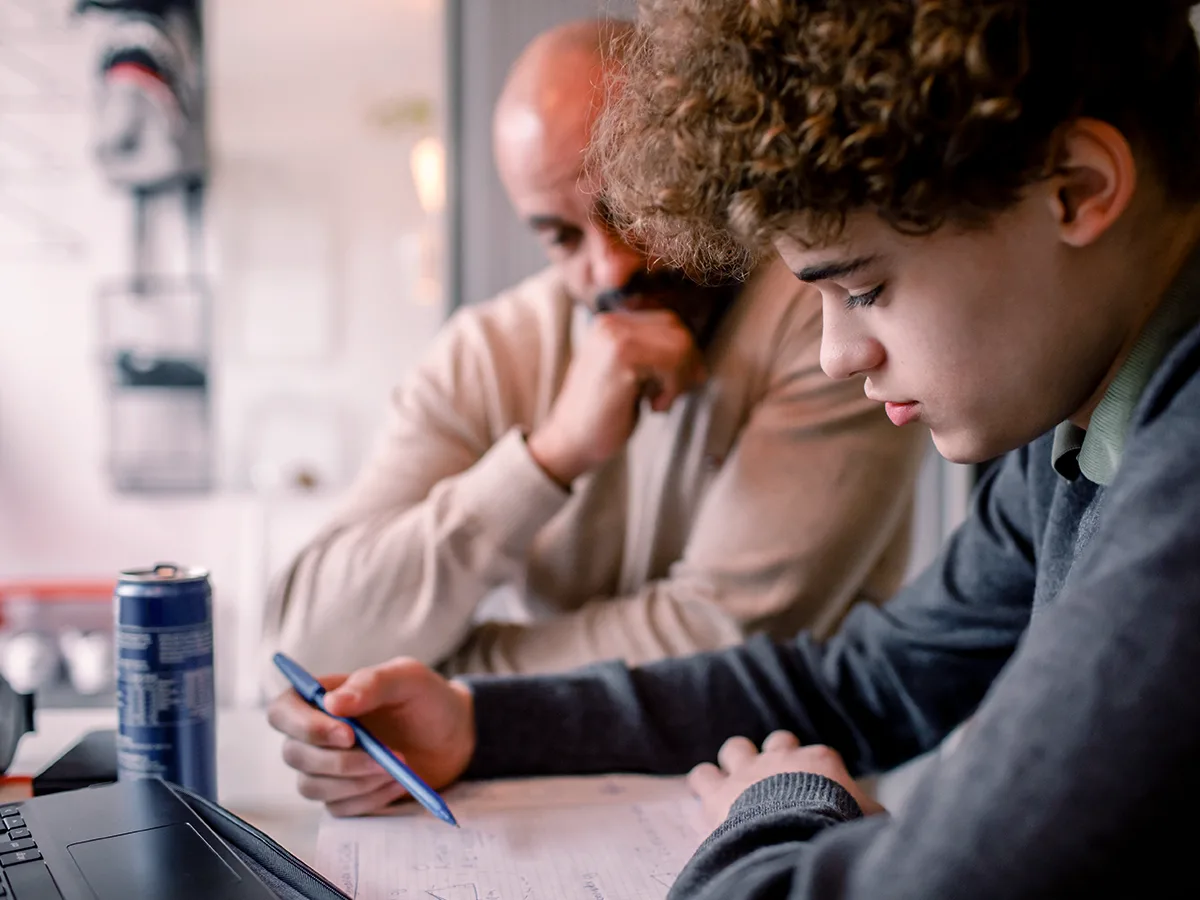New challenges kids face in high school

At a glance
There’s more homework and an emphasis on grades in high school.
High-schoolers need to manage time well, stay organized, and take good notes.
In high school, self-advocacy is important for kids with learning and thinking differences.
Making the shift from middle school to high school can be stressful for all teens. There are more expectations — socially, academically, and from extracurricular activities. It’s not surprising if these expectations create new challenges for kids who learn and think differently. Here’s a closer look.
Bigger school
A new learning environment can create a challenge for high-schoolers. The high school may be larger than the middle school. And this means more area to get around when switching classrooms between classes.
Kids will need to know the best path between classes. They’ll also have to keep track of time. They may have a different schedule on different days. And they may have to fit in trips to their locker to pick up materials.
For kids who struggle with or , this type of planning and navigation can be overwhelming.
Getting used to age differences
In middle school, kids probably were in classes with other students in the same grade. In high school, kids may learn alongside students from other grades.
Kids with ADHD, kids who struggle with social skills, or kids who are less mature than their peers may have a hard time. They may be exposed to new kinds of risky behavior and feel pressure to fit in. Teaching kids ways to deal with cliques can be helpful.
Time management and study skills
Staying organized enough to get everything done can be a challenge in high school. For kids with learning and thinking differences, it can be even harder to manage time and tasks.
Taking notes in class. Teens may have trouble with taking notes. They may find it hard to keep up with the teacher’s pace. Or they may not be sure what to write down. Note-taking apps and note-taking strategies may help.
Study skills. High school may bring more work and tests. Often, there are a few assignments with the same due dates, too. Show your student how to use a day planner or find an app to help with organization. You can also help break long-term assignments down into smaller pieces that are easier to manage.
If your child has an IEP or a 504 plan, work with your child and the team to figure out accommodations that will help. If your child doesn’t get special education services, you or your child can still ask the teacher if there are any informal supports that would help. That might include teacher’s notes or study guides.
Self-advocacy
In high school, self-advocacy is a big focus for kids with learning and thinking differences — and not just with peers. As the expectation to be an independent learner grows, kids will need to start playing a bigger role in their education. They’ll need to ask questions, seek help, and speak up about their needs.
When kids have an IEP, developing self-advocacy skills isn’t just a good idea. It’s the law. Kids with IEPs need to start taking part in IEP meetings and have input into their transition plan. You can also ask to have self-advocacy goals included in your child’s IEP.
School-life balance
Afterschool activities or a part-time job can make it even tougher for kids to stay on top of things. Kids who have challenges with executive function may find it overwhelming. The extra activities may take up a lot of time. Kids may be less likely to make homework a priority.
But activities can be a great way to make friends. They also let kids explore their own interests and learn what they enjoy doing. It’s a good idea to talk to your child about ways to balance a job and school.
More ways to help your high-schooler
It may take some time for your child to get used to high school. If your child has an IEP, make sure there’s a transition plan in place. It’s also a good idea for kids to meet their teachers before school begins.
It may also take some time for you to get used to having a child in high school. It’s important to know how to contact your child’s teachers.
Download and fill out a contact sheet.
See an example of an effective email to a teacher.
Find ways to talk to teachers about specific learning and thinking differences.
Key takeaways
Encourage your teen to have good study habits and help them keep track of assignments.
High-schoolers need to get their work done on time, even if they’re involved in extracurricular activities.
Learning how to speak up for themselves can build confidence and keep kids from feeling overwhelmed.




